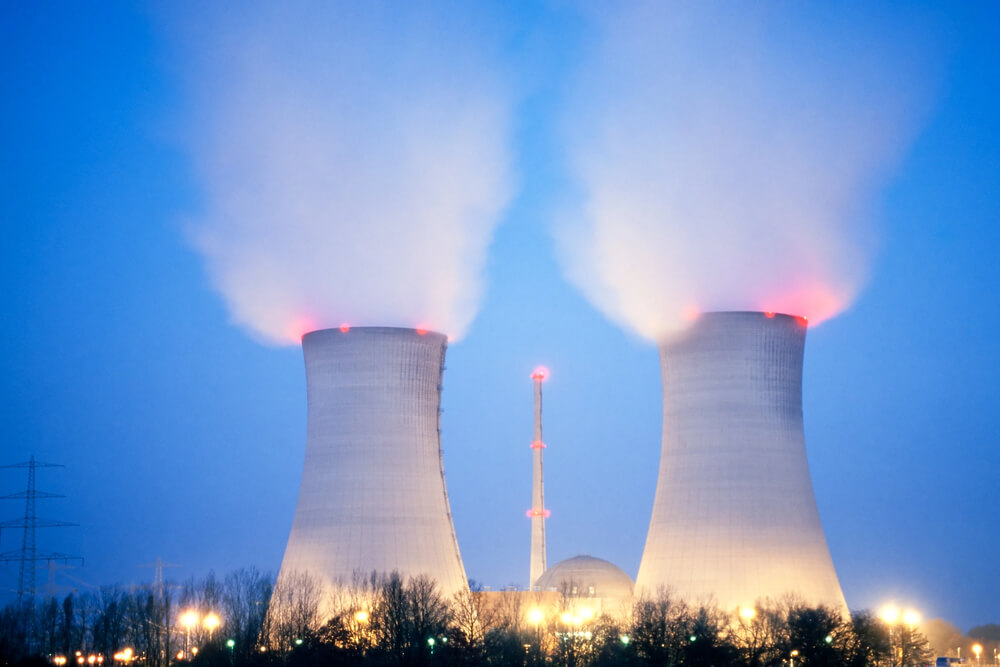The latest report from the World Meteorological Association paints a grim picture of the unrelenting pace of climate change.
Continually rising greenhouse gas emissions are contributing to record-setting temperatures, warming oceans and rising sea levels – threatening ecosystems, lives and economic prosperity.
The future of our country and the planet depends on clean, reliable and sustainable energy – including nuclear power. By investing in nuclear technology and the engineers behind it, Canada can meet both its energy needs and its emission-reduction targets.
As Canada moves towards net-zero emissions by 2050, nuclear energy will play a crucial role in reducing carbon emissions while providing stable baseload electricity – ensuring a steady supply of electrical energy regardless of weather conditions – unlike other renewables like wind and solar.
In Ontario, Natural Resources Canada reports that continued nuclear energy use will cut 30 million tons of carbon dioxide annually or 3.8 per cent of projected 2030 emissions.
While hydroelectric power is the biggest source of renewable energy in Canada, it cannot meet all of our energy needs. Wind and solar power are growing sources of clean energy, but they provide only a small portion of Canada’s electricity supply.
Nuclear energy, however, is already the third most important source of electricity in the country, making up 15 per cent of Canada’s supply – with nuclear reactors operating in Ontario and New Brunswick.
Nuclear energy provides 52 per cent of Ontario’s power and is set to become an increasingly important source of the province’s renewable energy in the future.
The Ontario government is investing $25 billion from 2016 to 2031 to refurbish 10 of its nuclear reactors and it plans to further expand its nuclear capacity to meet growing clean energy demands.
The expansion of safe and reliable nuclear power would not be possible without the knowledge and skills of Canada’s nuclear engineers.
Canada is a world leader in nuclear technology due to the expertise of our engineers. They were vital in developing the country’s CANDU nuclear reactors — operating in Canada and other countries around the world — and continue to innovate them today.
CANDU technology also plays a crucial role in producing medical isotopes for sterilizing equipment and treating cancer.
Engineering ingenuity has also led to advancements in nuclear energy that have enhanced design, safety, efficiency and sustainability — including the development of small modular reactors (SMRs).
These innovative new reactors are smaller — in size and power output — than conventional nuclear reactors, providing a more flexible, scalable, affordable and safer energy solution that is ideal for remote communities and industries like mining.
Given their potential to address both climate change and energy needs, several provinces are considering SMRs. Ontario has already committed to bringing four grid-scale SMRs online between 2029 and 2035.
While some might question whether nuclear energy is too risky, the reality is that safety is the overriding priority in the nuclear industry, guiding reactor design, operation and decommissioning.
Engineers follow strict safety protocols and use risk assessments and backup systems to protect the public and the environment. Contrary to misconceptions, modern reactors are far safer than earlier plants.
The CANDU reactors’ decades-long safety record – they were first developed in the 1950s and ‘60s — is a testament to the skills and knowledge of Canadian engineers.
Engineers also play a key role in safely decommissioning old plants — minimizing environmental impact — and maintaining, upgrading and recommissioning facilities to extend their life and improve efficiency.
They also manage radioactive waste — securely storing it for long-term environmental safety — and they are working on ways to reduce waste and enhance stability, supporting both safety and clean energy goals.
The primacy of safety is also a cornerstone of an engineering education. Accredited nuclear engineering programs provide a strong foundation in safety, efficiency and sustainability, alongside core principles like ethics, project management and problem-solving.
Educating more nuclear engineers will be essential as Canada increasingly turns to nuclear power as a clean energy source. Their knowledge, skills, resourcefulness and dedication to safety can help drive Canada’s sustainable future.
However, Canada is facing a shortage of skilled workers – including in engineering — underscoring the need for greater investments in engineering programs to attract and retain students.
Nuclear energy holds great promise for powering the country into the future while reducing its carbon footprint.
To unlock its potential, governments and industry must prioritize investments in both nuclear innovation and the education of future nuclear engineers.
Photo courtesy of DepositPhotos





